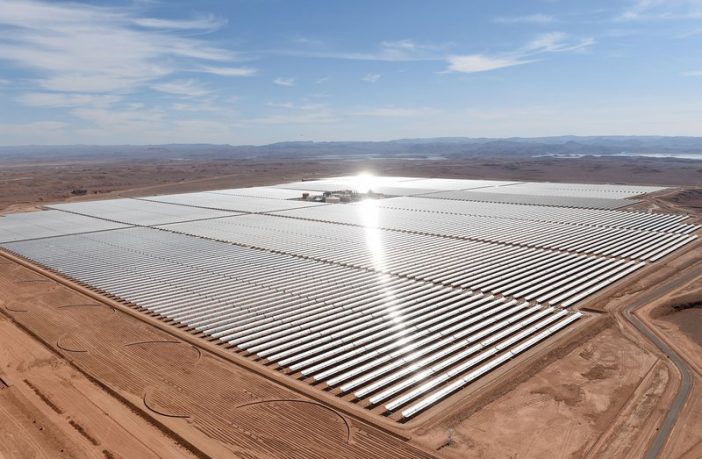- RES4Africa gathered a unique public-private forum from across the energy transition ecosystem to discuss the role of renewable energies, grid infrastructure, and innovative technologies in fostering energy security and independence.
Morocco will uphold its energy transition goals, along with its long-standing priorities of energy security and independence. This and other crucial topics were discussed by key actors from the local and international energy sector gathered at the high-level conference Accelerating the Energy Transition in Morocco: Challenges and Opportunities in a Changing World, organised by RES4Africa Foundation and sponsored by its member Siemens Gamesa.
The event, held in Rabat, provided a unique platform to outline priorities for Morocco’s energy transition, counting on the participation of local and international players, among which the Ministry of Energy Transition and Sustainable Development of Morocco, the National Office for Electricity and Drinking Water (ONEE) of Morocco, the Moroccan Agency for Sustainable Energy (MASEN), the Société d’Investissements Energétiques (SIE), the Research Institute for Solar Energy and New Energies (IRESEN), the Policy Center for the New South (PCNS) and RES4Africa’s members.
In response to the global climate emergency and its consequences, Morocco has made decarbonising its energy sector a national priority. Over the last ten years, the country has significantly increased its share of renewable energy to 20% by 2020 and is on track to reach its target of 52% of installed capacity by 2035. With the country’s new Low Carbon Strategy to 2050, ambitions went even further, setting a new target of 70% RE in the energy mix by 2040 and 80% by 2050 .
Against the backdrop of the COVID-19 crisis and security crisis in Europe, a new context has emerged characterised by an energy crisis, global inflationary pressures and high volatility of financial markets and commodity prices. In this complex international context, the event highlighted the unchanged position of Morocco regarding the deployment of renewable energy sources and the political will to work towards its RE targets.
The significant achievements of the last decade in terms of energy transition have been sustained by consistent long-term national strategies and government policies that improved the regulatory framework and the attractiveness of Morocco as a promising renewable energy market. Indeed, a thorough assessment of the Moroccan regulatory framework was presented in the first session, drawing on the conclusions of RES4Africa and UNECA’s ”Regulatory Review of the Moroccan Electricity Market: Towards Crowding-in Private Sector Investment” report. Building on the results of the study, private sector actors and institutional stakeholders underlined best practices and key conditions that enable a favorable environment for investments in the clean energy sector.
Along with the right balance of policies and regulations, another challenge presented by the deployment of RE in Morocco is the issue of grid integration, storage, and the various adjustments needed for building a resilient infrastructure for the Moroccan electricity system. During the discussion, industry leaders delved deeper into the main lessons learned in Morocco and in the rest of the world to identify the multiple steps needed to design a future-proof distribution system.
The imperative of a rapid transition to clean energy has also enabled developments in beyond-the-meter services and spurred innovation across the value chain, which have been the focus of the afternoon sessions. On the one hand, pioneering solutions are multiplying and bringing new competitive advantages to the market through digitization, smartization, and energy-efficiency integrations. On the other hand, new sectors and technologies, spanning from green hydrogen to agrivoltaics, are widening the spectrum of the possible tools to further unlock the clean energy transition.
The high-level conference was also an occasion to present the main activities that RES4Africa has been carrying out in the Mediterranean area and Morocco since its foundation in 2012 as RES4Med, as well as to define future collaboration modalities with local partners.
“In the run-up to COP27 in Sharm el Sheikh later this year, Africa will be at the center of international discussions,” commented Roberto Vigotti, RES4Africa’s Secretary General.”Today’s event represented a unique opportunity for Morocco to maintain and reaffirm its leadership in the energy transition, not only in the Mediterranean region but in the whole African continent,” he added.
“The wind industry is currently facing significant constraints due to the changing demands of the global market. Public private partnerships that join forces to address associated risks are crucial to overcome these challenges. We, at Siemens Gamesa, remain deeply committed towards all our Moroccan stakeholders to accelerate the country’s sustainable green transition,” said Ms. Najlae Yazghi, Managing Director for Morocco, Siemens Gamesa.
Author: Bryan Groenendaal















